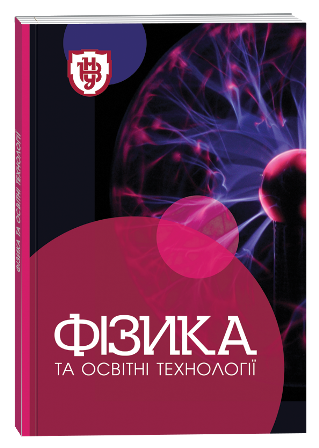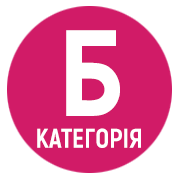ORGANIZATIONAL AND METHODOLOGICAL CONDITIONS FOR THE USE OF DIGITAL LABORATORIES IN THE SYSTEM OF STEM EDUCATIONAL DIRECTION IMPLEMENTATION
DOI:
https://doi.org/10.32782/pet-2022-1-4Keywords:
STEM educational direction, digital laboratory, blended learning, physical experimentAbstract
Modern educational requirements for the education of an active and creative personality provide for the acquisition of the ability to adapt to the rapid changes of today, to generate non-standard solutions to tasks for lifelong learning. The task of educational institutions is to ensure the realization of these qualities, the formation of subject and key competencies, the formation of means of increasing the motivation of students to study. The article analyzes the aspects of the concept of introducing the STEM direction into the global and domestic education industry. The analysis of scientific works on the problem of the development of STEM education made it possible to establish the peculiarities of teaching physics, considering the introduction of modern technologies. The components of STEM education in physics include means of distance, blended learning in combination with modern network technologies. This concept is especially relevant in the conditions of martial law. Guided by the recommendations of the state program for improving the quality of science and mathematics education, emphasis is placed on the use of modern experimental tools and digital laboratories. The use of digital laboratories makes it possible to organize a physical experiment at a fundamentally new level. An example of complex research implementation with the use of a digital laboratory is presented. The results of the conducted pedagogical experiment convincingly prove that mixed learning technologies using digital laboratories are powerful tool in the work of the teacher and an effective means of learning for pupils and students.
References
Атаманчук П.С., Форкун Н.В. Впровадження елементів STEM-освіти в освітній процес. Наукові записки Центральноукраїнського державного педагогічного університету імені Володимира Винниченка. Серія : Педагогічні науки. 2019. Вип. 179. С. 15–24.
Бугайчук К.Л. Змішане навчання: теоретичний аналіз та стратегія впровадження в освітній процес вищих навчальних закладів. Інформаційні технології і засоби навчання. 2016. Т. 54, № 4. С. 1–18.
Валько Н.В. STEM-освіта вчителів у країнах Сходу та Австралії. Проблеми інженерно-педагогічної освіти. 2018. № 61. С. 36–47.
Валько Н.В. Досвід впровадження STEM-освіти у США та Канаді. Наукові записки Бердянського державного педагогічного університету. Сер.: Педагогічні науки. 2018. Вип. 3. С. 9–20.
Василашко І.П., Білик Т.В. Упровадження STEM-навчання – відповідь на виклик часу. Управління освітою. Київ, 2017. № 2(386). С. 28–31.
Гончарова Н.О. Понятійно-категоріальний апарат з проблеми дослідження аспектів STEM-освіти. Наукові записки Малої академії наук України: зб. наук. праць. Київ, 2017. Вип.10. С. 104–114.
Іванченко Н.М. Принципи впровадження та переваги STEM-освіти URL: //timso.koippo.kr.ua/hmura13/ivanchenko-nataliya-mykolajivna-pryntsypy-vprovadzhennya-ta-perevahy-stem-osvity/ (дата звернення: 06.07.2022).
Засоби та обладнання STEM. URL: https://imzo.gov.ua/stem-osvita/zasobi-ta-obladnannya-stem/ (дата звернення: 08.07.2022).
Кузьменко О.С. Сутність та напрямки розвитку STEM-освіти. Наукові записки. Серія: Проблеми методики фізико-математичної і технологічної освіти. Кіровоград, 2016. Вип. 9. Ч. 3. С. 188–190.
Martyniuk, O.O., Martyniuk, O.S., Pankevych, S. and Muzyka, I., 2021. Educational direction of STEM in the system of realization of blended teaching of physics. Educational Technology Quarterly [Online], 2021(3), p.1. Available from: https://doi.org/10.55056/etq.39 [Accessed 29 July 2022].
Наказ МОН від 29.02.2016 № 188 «Про утворення робочої групи з питань впровадження STEM-освіти в Україні». URL: https://zakon.rada.gov.ua/rada/show/v0188729-16#Text. (дата звернення: 06.07.2022).
Про Основні засади розвитку інформаційного суспільства в Україні на 2007–2015 роки : Закон України. Голос України від 06.02.2007. № 21.
Садовий М.І., Каленчук Е.В., Каленчук А.Т. Підготовка майбутніх учителів фізики, хімії, біології та природничих наук у контексті вимог Нової української школи: Матеріали ІІІ Міжнародної науково-практичної конференції «Формування предметної компетентності з природничих наук в учнів старшої школи засобами STEM-технологій 20 травня 2021 р.», м. Тернопіль. С. 294.
Cтрижак О.Є., Сліпухіна І.А., Полісун Н.І., Чернецький І.С. Ключові поняття STEM-освіти. Наукові записки Малої академії наук України : зб. наук. праць. Київ : Інститут обдарованої дитини НАПН України, 2017. Вип.10. С. 89–103.
STEM-освіта: теорія і практика: анотований каталог / укладачі: С.М. Грицай, С.В. Кода. Суми : НВВ КЗ СОІППО, 2021. 52 с.








